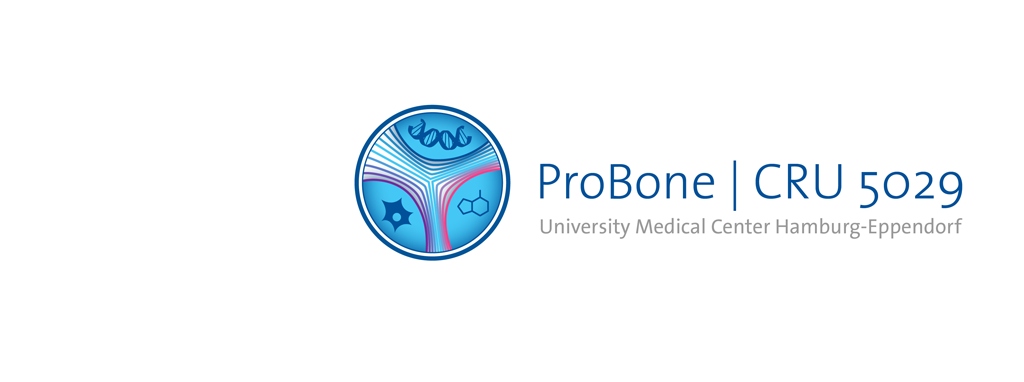Project 4: Molecular bases of non-classical osteogenesis imperfecta
Description
Osteogenesis imperfecta (OI) is a large group of diseases with early-onset low bone mineral density and skeletal fragility. In contrast to classical forms of OI, which are caused by pathogenic variants of COL1A1 or COL1A2, the non-classical forms of OI are due to genetic defects in one of more than 20 other genes. The molecular understanding of most of the proteins encoded by these genes is still very poor. This applies in particular to the site-2 protease, which is encoded by the gene MBTPS2 and whose pathogenic variants cause an X-linked OI form, but also for the transmembrane protein IFITM5, which is specifically expressed in osteoblasts and where a specific pathogenic variant (c.-14C>T) causes the autosomal dominant OI form type V. Together with other ProBone projects, we want to use extensive trans-omic profiling as well as biochemical and cell biological methods to understand the dynamic processes in osteoblasts, as well as identify key molecules and specific signaling pathways of bone formation under (patho)physiological conditions in non-classical OI. Functional and structural analyses of the OI-associated proteins and their pathogenic variants will provide deeper insights into the primary pathomechanisms of OI, which will contribute translationally to the establishment of therapies in the ProBone network.



